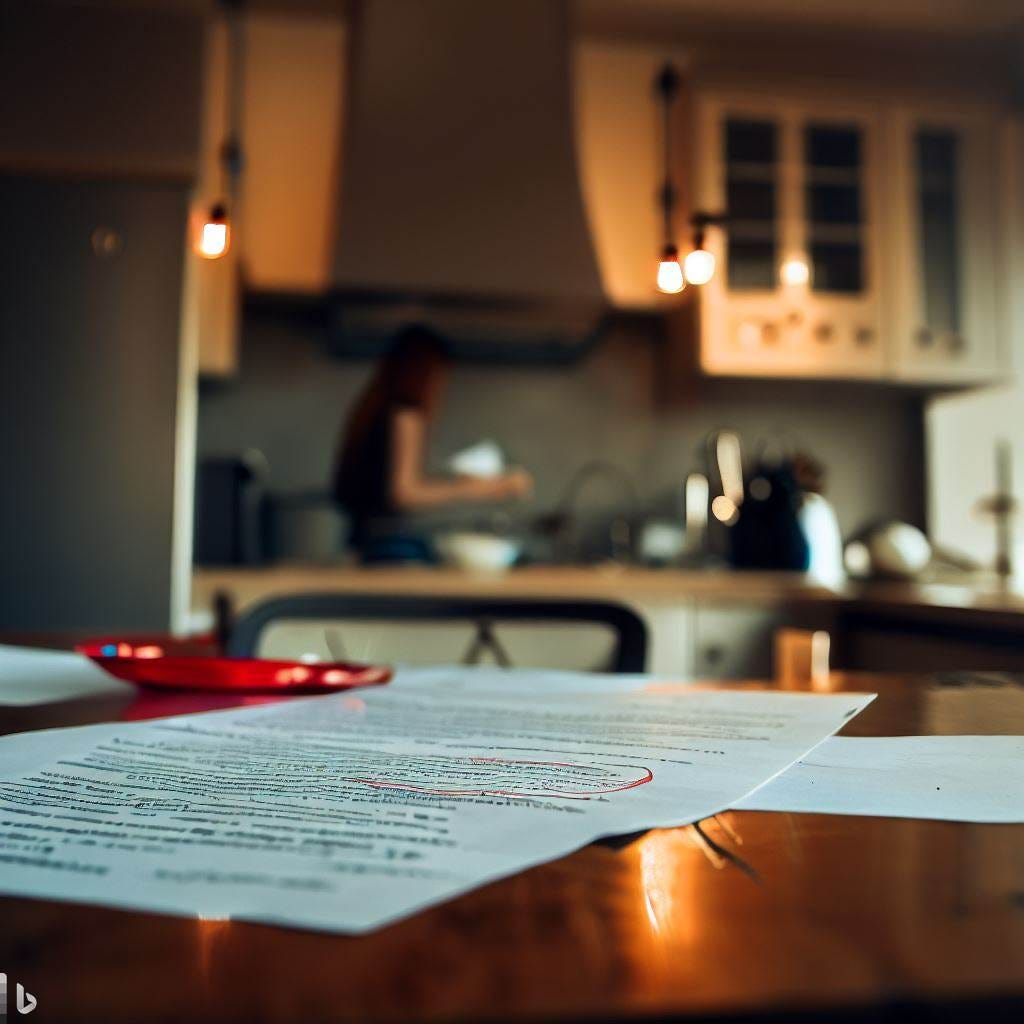School has messed up how we perceive feedback. Let me demonstrate this with an example of how to ruin your marriage.
I got married at 21, 6 months after my first date with the girl. We had both just taken time off from school to do service work for our church, and my wife didn't start school back up until after our wedding since she needed to transfer to my college. This backstory is to let you know we had never seen what each of us was like as a student.
Just a few months into our marriage, my wife had a paper due for a class. She asked if I would be willing to review it, and, being the loving husband I was, I of course agreed. I took out a red pen and immediately started highlighting all of the things she needed to improve. While I got lost in my corrections, she got up and did some dishes. Within minutes, she was crying at the sink.
While I wasn't belittling her in my corrections, I probably could have been more sensitive in how I gave the feedback. And so I sat there, just a few months into a marriage that I'm supposed to make last a long time, holding a paper dripping in red ink, realizing that I had just made my wife feel like she was stupid.
And that's evidence that feedback is broken.
This insight came to me through a similar experience. I sent some work to a colleague asking for feedback. Once he read it, he asked to setup a time to review it. Just thinking of the meeting, I started getting anxious and mentally defending my choices. "If he points to this section, I'm going to remind him that someone else did the same thing and it worked out fine for them..."
Why was I getting defensive? I think it's because of school.
When you wrote a paper for school, what kind of feedback did you get? If it was a good paper, you got a star or maybe "nice work!" written in the margins. That's not really feedback. The only time you got feedback was when you fell short. That's when your teacher would point to your confusing paragraphs or failing grammar.
School tells us that good work doesn't get feedback. Feedback meant you were losing points. Feedback was bad.
And so I realized this week that I had an adversarial relationship with feedback. I was approaching it with the best outcome being no comments at all. I believed feedback turned bad work into good work.
But there's a better way to approach it. We should seek feedback to turn good work into great work.
A comment that says, "This part was unclear," is not a comment on your writing skills. It's a new set of eyes saying, "While this might make sense to you, who already understands the point, you could make this even better if you considered a reader without your perspective."
And to my wife's credit, she learned this strategy early. As traumatizing as my feedback was, she saw that she got an A on the assignment. So going forward, she not only ran each essay by me, she had her TA check it and even professors, if they were willing. She overcame that pride and saw that feedback took her good work and made it great.
So I hope you join me going forward and seek feedback instead of avoiding it.
Links
Funko Pop dumps $30,000,000 worth of inventory
This one stood out to a lot of people because Funko was junking inventory to keep its prices up—classic monopoly restricting supply to get higher prices. But something more subtle stood out to me: the cost of storing inventory. We often don’t think about how the space for inventory has a cost, but it often costs a lot! In fact, reducing inventories is one of the mechanisms that Robert Fogel, a Nobel laureate economic historian, said made railroads financially more attractive than transporting goods over waterways.
MIT puts its graduate-level development economics course on YouTube
Speaking of Nobel laureates, if you wanted to learn from one yourself, you can now! MIT put lectures from Esther Duflo and her colleagues on development economics and poverty reduction for free on YouTube. Since I teach an undergraduate-level development course, I’ve been listening to these lectures while I do archival work. Highly recommend them!




